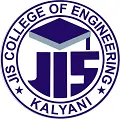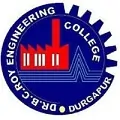Curriculum:
- The B.Tech in Civil Engineering curriculum covers essential topics such as Structural Analysis, Geotechnical Engineering, Fluid Mechanics, Surveying, Environmental Engineering, Transportation Engineering, Concrete Technology, Construction Management, and Design of Structures. This curriculum provides a solid foundation in planning, designing, and managing various civil projects, preparing students for diverse roles in civil engineering.
Internship/Practical Training:
- Practical training is integral to Civil Engineering, where students participate in internships, lab work, and field projects. Internships are typically completed at construction firms, consultancy firms, government agencies, or infrastructure companies, where students gain experience in site work, project management, surveying, and environmental assessments. This practical exposure is crucial for understanding real-world applications in civil engineering.
Job Prospects:
- Graduates of B.Tech in Civil Engineering have a broad range of job opportunities in sectors like construction, infrastructure development, urban planning, environmental consultancy, and government agencies. With growing urbanization, skilled civil engineers are needed to manage complex infrastructure projects, ensuring safety, sustainability, and efficiency.
Salary Range:
- Entry-level salaries for Civil Engineering graduates typically range from INR 3 lakh to 6 lakh per annum, depending on the role and location. With experience, salaries can rise significantly, especially for specialized roles in project management, design, or consulting.
Further Studies:
- After completing B.Tech in Civil Engineering, graduates can pursue higher studies such as M.Tech in Civil Engineering, M.Tech in Structural Engineering, MBA in Construction Management, or certifications in areas like Project Management or Environmental Engineering. These further studies enhance career prospects, allowing for specialization and higher-level roles in civil engineering.












